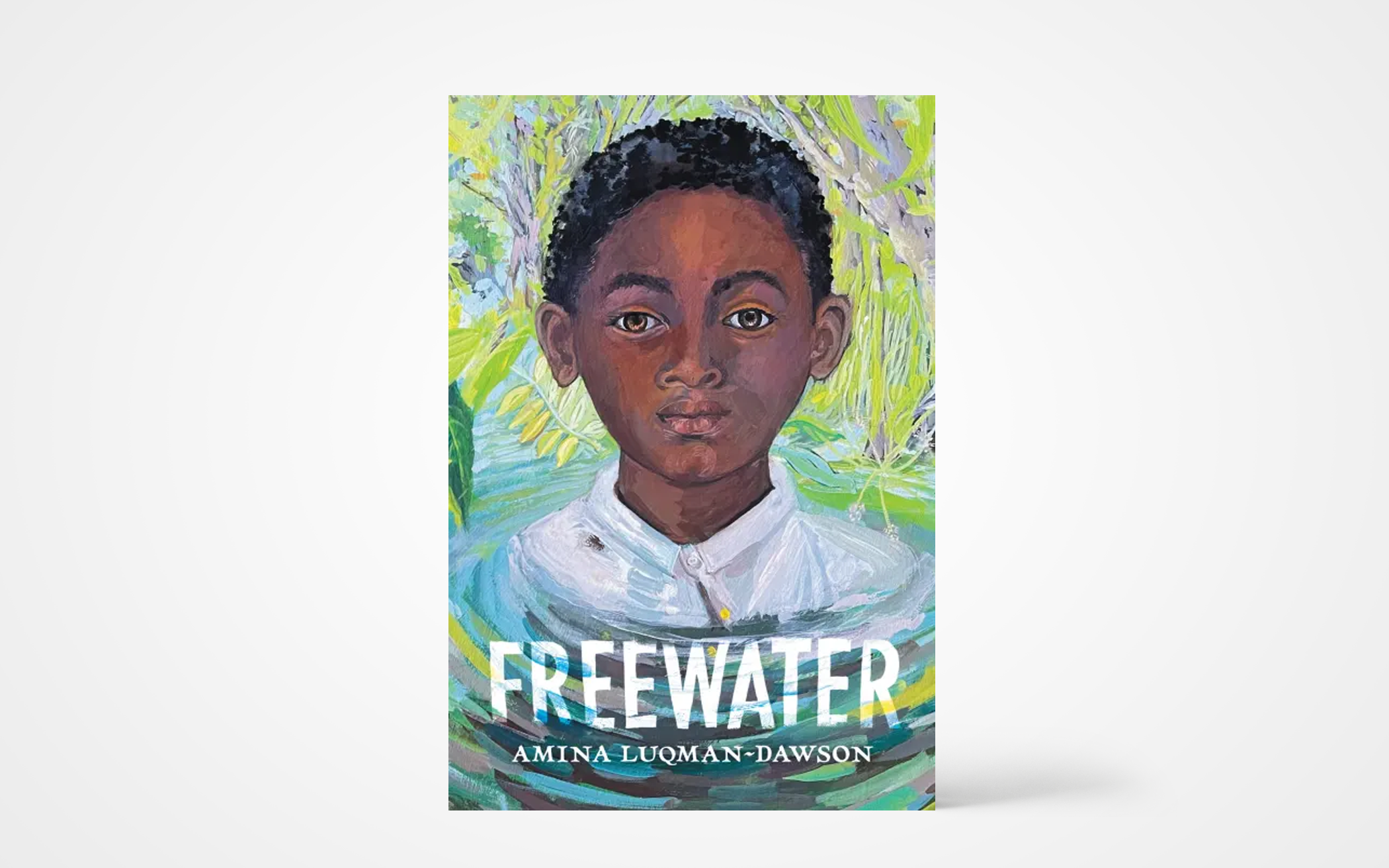In Freewater, author Amina Luqman-Dawson introduces middle school readers to the existence of maroon communities, runaway slave communities in remote areas. In an author’s note, she writes, “Enslaved women, men, and children found a multitude of ways big and small to resist and escape bondage. We usually learn about them escaping North or to Canada. Lesser known are those who found refuge deep in the swamps and forests of the American South and even began secret communities.” Luqman-Dawson loosely based her fictional maroon community called Freewater on the Great Dismal Swamp—at its peak it covered 1,500 square miles and stretched from Virginia to North Carolina—and the formerly enslaved people who found refuge there.
Twelve-year-old Homer has learned to make himself “invisible” on the Southerland Plantation where he and his mother and 7-year-old sister Ada are enslaved. When the three of them make a run for freedom, nothing turns out as planned. Homer and Ada wait in a nearby swamp as Mama sneaks back to the plantation to bring Homer’s friend Anna along with them because Homer had promised the girl he wouldn’t run without her. When Mama and Anna don’t rejoin them, the children are forced deeper into the swamp. What they discover on their journey and when they arrive in Freewater is beyond their wildest dreams—an inhospitable jungle environment, a hidden doorway over a river, a sky bridge, and people living free in an organized community. Homer realizes that “there was more to the world than I’d ever known.”
Homer and Ada are embraced by the community and become friends with a complex, courageous, and emotionally wounded cast of their peers. When Homer learns of a threat to Freewater, he decides to return alone to Southerland to glean information and to bring Mama and Anna back to the maroon community. But in an unexpected, emotionally charged series of events, Homer learns that his peers—now his friends!—are loyal, brave, and committed to him and to freedom.
Well-drawn characters, numerous narrative viewpoints, and a glimpse of a little-explored window of resistance to the institution of slavery make Freewater a must read for juvenile readers. (Little, Brown Books for Young Readers)
About the Author
Sonya VanderVeen Feddema is a freelance writer and a member of Covenant CRC in St. Catharines, Ontario.

